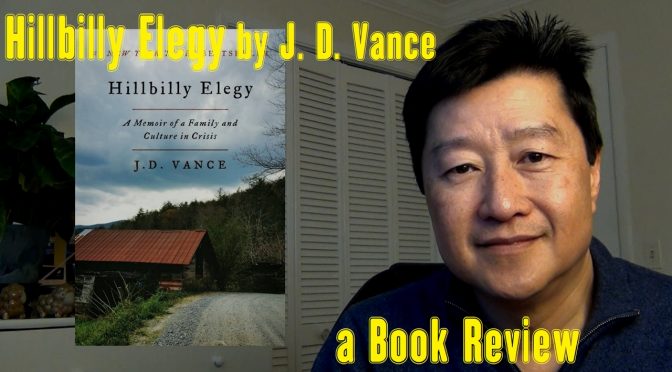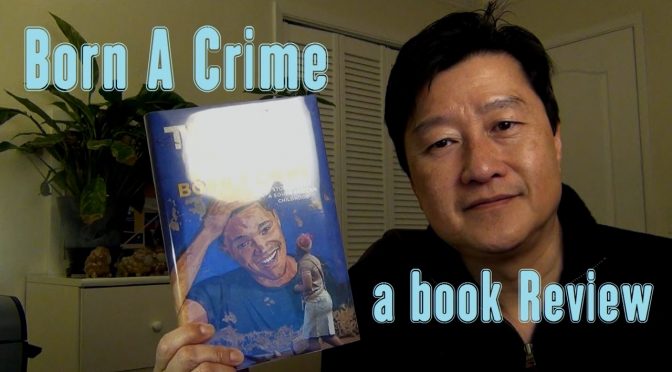This is a story or memoir about a young boy living under the most adverse environment of the hillbilly family and became a successful attorney through his own perseverance and lots of help from some members of his family. By definition, hillbilly refers to an unsophisticated country person, associated originally with the remote regions of the Appalachians. The author’s family matches that definition well.
In the book, he talks about the history of his family members started from the great grand parents to his early young life. Then he covers his teenager years staying with his grant parents, followed by his joining the marines. Finally, he describes his effort in returning to college and getting a Yale Law degree and marrying his wife.
In this book you get to understand the family culture of a hillbilly family but you’ll learn that it’s hard to succeed in life without some help from someone you care about, in his case, his grandmother, who he called “Mamaw”, and his grandfather, who he called “Pamaw.”
The author is critical of the hillbilly’s mentality: contradicting beliefs on defending family members and cheating on them, being tough and yet lazy, being religious and claiming church-going and yet have low statistics of church-going and violating commandments. In fact people in the the church-belt region have a lower church attendance.
He learned the evolved rules of fighting from his Mamaw. Fight only in defense of yourself, but sometimes you’d need to fight even if you’re not defending yourself. He was taught the trick of fighting: turn side way with your shoulder against the opponent and punch in the belly button.
Constant moving without a stable environment could do severe damage to a kid’s life as in the author’s case, especially when the environment was of constant fighting and even violence between his mom and the boyfriends/husbands, resulting in “revolving” doors of father figures. The key indicator was his school grades and poor health due to distress. Conflict resolution is not his mom’s strong suit, nor of the “normal” hillbillies. His mom even attempted suicides by crashing her car, later drug abuses.
His relationship with his mom was a treacherous one. It went from a parent/son relationship to room-mate, sometimes abuser including one time that she threatened to crash the car with him in it. He escaped and hide himself in a stranger’s home, whose door was broken in before being dragged out by his mom who was eventually arrested by cops. It was a scary moment for a kid who would have to lie in the court to get his mom out of trouble.
The author adores his sister, Lindsey, who he called his protector from his Mom when he was most vulnerable. He describes the time when her childhood modeling when up in flames. He probably wouldn’t stand a chance without his “half-“sister as he later found out in great distress that his big sister has a different father.
Mamaw considered herself a religious person and read bibles often but didn’t go to church, which she considered as “organized religion” with contempt – “a breeding ground for perverts and money changers.” Mamaw was a strong influence on his getting good academically when he spent his last three and stable years of high school with her.
The author got into more details of his relationship with his dad who gave up his parental right and allowed him to be adopted by Bob, who disappeared from his life after just over a year. His father’s story was more reasonable why he gave up – to not cause any more trauma in his son’s life. The father-son relationship developed later in his life.
His relationship with Papaw (grandfather) was a special one. He drew his father figure from him – a classic, terrifying hillbilly. When he was 13, his Papaw passed away after not showing up in his Mamaw’s house. The funeral brought back all the good and interesting stories about his Papaw.
He joined the marine to get trained in physical and mental toughness and fitness and became and acted like an adult as seen by the barber in the corner store where he walked by many times in Middletown. He was able to payback somehow to his Mamaw until her death, the end of his “protector.” The marine taught him many life lessons, leadership skills and the confidence of achieving to his best abilities by giving his all.
He told of his college life and decision to go for a Law degree and how he got accepted to Yale. At Yale, he describes occasions of “class tourism” trying to know how the upper class works, interacts, dresses and behaves. It was foreign to him and yet opened many doors to him. His experience at Yale, whether to apply to editor role in the Yale LawJournal, apply to judge clerkship and what it means to your law career could be helpful for someone looking into the legal profession. And importantly he knew how to leverage his “social capital.”
Having been in an abusive family environment, ACE “Adverse Childhood Events,” or he called “hillbilly school of hard knocks,” he developed a run-away reaction to conflicts. He had to overcome that fight-or-flight impulse with his relationship with his wife, Usha. What kept him alive at the young age turned out to be an obstacle for him to assimilate to the “normal” society, like fighting for his “honor” when someone cut him off while driving.
It was heartbreaking that he had to check in his mother to a motel when he was informed that his mother passed out in a car with a needle stuck to her vain. In contrast, he turned out well fighting the demons from growing up in that environment.
This is a great book for someone not exposed to the hillbilly culture to understand their plight and why our current President Donald Trump managed to win the election with their help.
I highly recommend this book.


